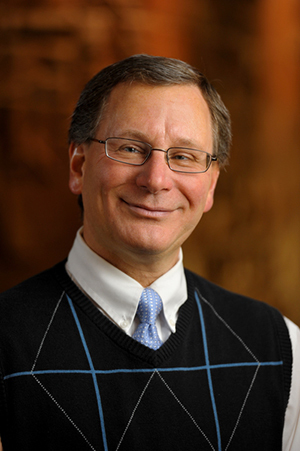 Timothy Matovina
Timothy Matovina
Pope Francis is due to arrive in America Sept. 22, his first trip to North America. He’s expected to address the growing influx of Latinos in the U.S. Catholic church while he’s here, including delivering several talks in Spanish. Timothy Matovina, professor of theology and co-director of the University of Notre Dame’s Institute for Latino Studies, says Latinos have “much to offer” in the Church and are actively revitalizing Catholic faith communities.
Matovina teaches and studies Latino theology and Catholic history in America. He is the author or editor of 12 books, including “Guadalupe and Her Faithful: Latino Catholics in San Antonio, from Colonial Origins to the Present” and “Presente! U.S. Latino Catholicism from Colonial Origins to the Present.”
How would you describe your principal research and teaching?
I work in the area of theology and culture, with specialization in U.S. Catholicism and particularly U.S. Latino Catholic theology, history and faith expressions. Several of my publications have examined devotion to Our Lady of Guadalupe, and my current book project is tentatively titled, “Engaging a New World: Theologies of Guadalupe in the Americas.” In other works I address the challenges and opportunities of Hispanic ministry in the United States, including my most recent book, “Latino Catholicism: Transformation in America’s Largest Church.” My teaching flows from and feeds into this research. I teach courses on topics related to Mary, Latino theology and ministry, and U.S. Catholic history, along with the introductory foundations course offered as our undergraduates’ first theology requirement. I also enjoy offering presentations on these topics in dioceses and pastoral institutes across the United States.
How have Latinos affected the Catholic Church that Pope Francis will visit when he comes to the United States this month?
Latinos receive much from their participation in the U.S. Catholic Church, such as educational and formation opportunities, greater access to the sacraments than is often the case in Latin America, and assistance helping those who are immigrants adjust to life in the United States.
Latinos also have much to offer. Their youthfulness is a source of revitalization for Catholic faith communities. Their ritual and devotional traditions incite embodied prayer and faith. Their desire for faith formation and to serve in ministries provides a new cadre of pastoral leaders. Their promotion of apostolic movements and small faith communities deepen faith and evangelization outreach. As the U.S. bishops noted in their 2002 Encuentro and Mission document, “Hispanic Catholics are a blessing from God and a prophetic presence that has transformed many dioceses and parishes into more welcoming, vibrant and evangelizing faith communities.” In a word, despite tension and difficulties, Hispanics and their fellow Catholics have great potential to mutually enrich one another.
How do you think the Pope’s Argentine origins will affect the Latino Catholic Church in this country?
Pope Francis was one of the principal architects of the 2007 episcopal conference at Aparecida, Brazil, which addressed many of the concerns Latino Catholics face in the United States. He is a proponent of teología del pueblo (theology of the people), an Argentine version of liberation theology that focuses on everyday people as recipients and agents of evangelization. This approach seeks to provide pastoral support for the broad range of Catholic movements that have energized Latin American Catholics over the past half century. The hunger for God among participants in these movements is also evident among Latinos in the United States. They now comprise nearly half the participants in lay ecclesial ministry programs. I have taught in these programs in dioceses across the country and personally witnessed the sacrifice and dedication of highly motivated Latino participants. Their faith is also manifest in apostolic movements, groups that stress a programmatic conversion to Christianity as an intentional way of life. As in Latin America, Pope Francis’ urgent appeal that Christians lay down their lives to proclaim the joy of the Gospel will certainly intensify the wave of revitalization movements among Latino Catholics in the United States.
Contact: Timothy Matovina, 574-631-4831, Timothy.Matovina.1@nd.edu
Originally published by at news.nd.edu on September 10, 2015.